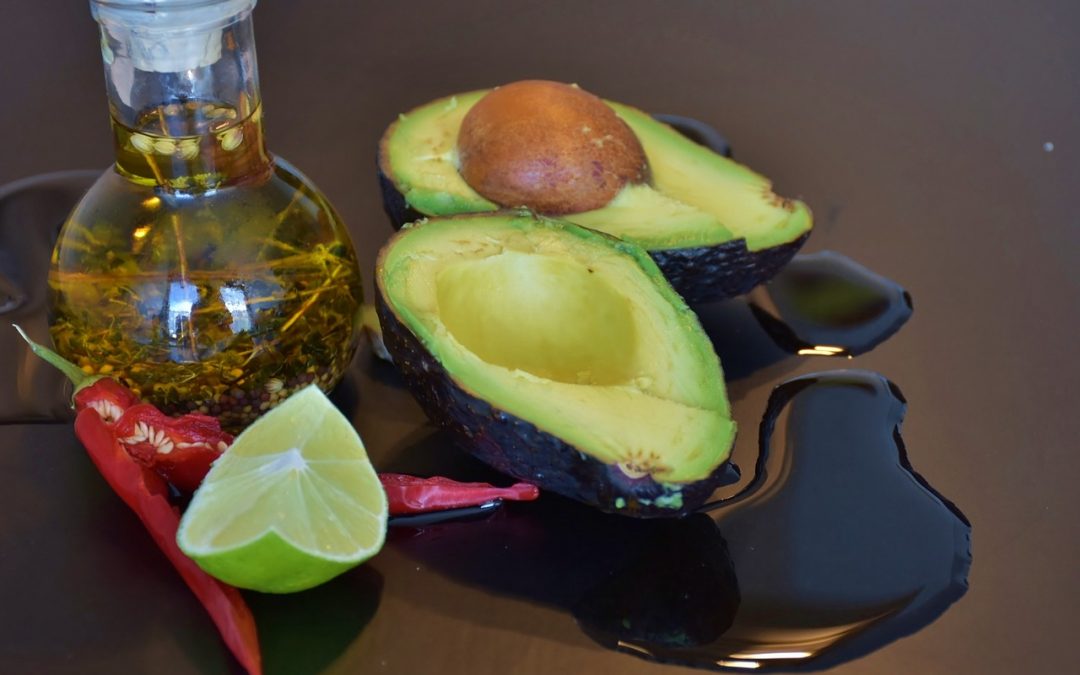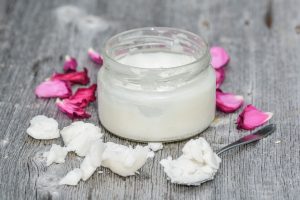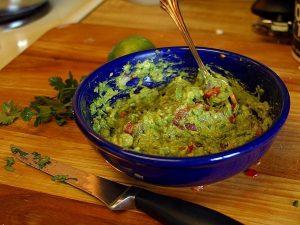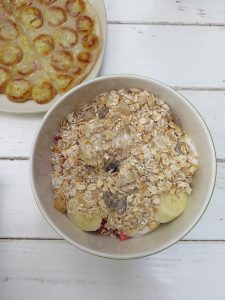Hypercholesterolemia is a condition in which the blood cholesterol level of the body is more than normal. The occurrence of this condition has been on a steady rise over the years. This can be attributed to the kind of food people eat. Since people have become busier, they tend to rely on fast foods, which contains a large amount of fat and oily substance. Also, this condition has been associated with genetics. Is lowering cholesterol with avocado coconut oil and other healthy fats more effective than taking statins? Cholesterol in itself is not bad. However, there are four classes of cholesterol which includes:
- Very low density lipoprotein
- Low-density lipoprotein
- Intermediate density lipoprotein
- High-density lipoprotein
The low-density lipoprotein(LDL) is also referred to as the bad cholesterol. It is a problem when the level of the low-density lipoprotein is high in the body. It leads to the development of atherosclerosis, which can lead to so many heart diseases. Is lowering cholesterol with avocado, coconut oil, and other healthy fats more effective than taking statins?
Many people have been trying to look for ways to reducing their cholesterol level. One out of the many effective ways have been Statin, but this drug has so many side effects. Some of the side effects of statin include joint pain, headache, damage of the liver, muscle pain and dizziness. This has made it difficult for people to use because of the drug effects. It must be noted that not all that uses statin will have the side effects. Some people do use the drugs without having any problems. Natural products such as Avocado, coconut oil are effective in lowering the body cholesterol, although they are not as effective as the statin drugs, they are without the side effects that is associated with statins.
Does Coconut Oil Raise Cholesterol If Combined with a Low Carb Diet?
It raises good cholesterol levels. Even though coconut oil contains a high level of saturated fat, most people’s cholesterol level increases after constant consumption of coconut oil, although, as said above, there are different classes of cholesterol.
The type of cholesterol that increases, in this case, is the High-density lipoprotein (The good lipoprotein). This decreases the chances of having any form of heart disease that may be due to cholesterol or fat. The total cholesterol puts into consideration all the classes of cholesterol, which also includes the good and bad cholesterol. Is lowering cholesterol with avocado, coconut oil, and other healthy fats more effective than taking statins?
In a situation where the total cholesterol is really significant, coupled with an equally high amount of good cholesterol, the individual is said to have a low risk of having heart problems. However, in a case where the total cholesterol level is on the high side, with a corresponding big amount of low-density lipoprotein, the patient is said to have a high risk of having heart diseases.
Is Lowering Cholesterol with Avocado Coconut Oil and Other Healthy Fats More Effective than Taking Statins?
Good fats Increase good cholesterol. This helps decrease heart disease risk.
Overall, coconut oil combined with a low carbohydrate diet raises the cholesterol level, but specifically the high-density lipoprotein (the good lipoprotein), which reduces the chance of heart diseases.
Is Consuming Coconut Oil for Lowering Cholesterol Effective for Good Heart Health?
Increases good cholesterol. This helps decrease heart disease risk.Coconut oil increases the good cholesterol level in the body and decreases the amount of bad cholesterol, which improves the heart condition.
Coconut oil contains a high level of saturated fat Most people’s cholesterol level increases after constant consumption of coconut oil, although, the good cholesterol (high-density lipoprotein) increases. This decreases the chances of having any form of heart diseases that may be due to cholesterol or fats. The total cholesterol puts into the consideration all the classes of cholesterol, which also includes the good and bad cholesterol.
In a situation where the total cholesterol is really large coupled with an equally high amount of good cholesterol, then the individual is said to have a low risk of having heart problems, however, in a case where the total cholesterol level is on the high side, with a corresponding big amount of low-density lipoprotein, the patient is said to have a high risk of having heart diseases.
Do Saturated Fats Lower Cholesterol When Replacing Carbs?
Many people have been led to believe that the right thing to do after decreasing their fat intake is to increase their carbohydrate consumption. This is an inappropriate way of going about it. It increases the risk of replacing saturated fat with carbohydrates. When people decrease their intake of one nutrient, they naturally have to replace it with one or more than one nutrient. In a study that was done, that involved twelve North American and Western Europeans and that was followed up with about 350,000 subjects for around 9 years, concluded that switching saturated fat with carbohydrate upsurges the risk of coronary diseases. However, this same recommendation that was endorsed by many health professionals. To increase saturated fat really does raise the risks of having heart disease! You should not be worried about your saturated fatty acid level if your carbohydrate consumption is low. Is lowering cholesterol with avocado, coconut oil, and other healthy fats more effective than taking statins?
What Are Statin Drugs Side Effects?
Statin are drugs administered to treat hypercholesterolemia. This is aimed to reduce the cholesterol level in the body. Hence, reducing the risks of having coronary heart diseases, atherosclerosis and other heart associated conditions. However, statin are associated with lots of side effects. Some of these side effects are highlighted below
- Joint pain– This is the commonest complains among users of statins. They frequently complain of pains in the joint, and also pain the muscles. It can be serious enough to inhibit one’s daily activity. These drugs can also cause rhabdomyolysis. A condition in which the skeletal muscles are destroyed.
- They destroy the hepatic system: Even though this is not a common occurrence, statins are capable of destroying the liver. They do this by stimulating signals that causes liver inflammation.
- Hyperglycemia: Statin drugs can cause increased blood sugar if not managed well can lead to type 2 diabetes mellitus. The Food and Drug Administration in America has issued a notice to this effect that statins are capable of causing high sugar levels.
- Memory loss: Although not proven yet, there have been cases where statins have been recorded to have resulted in the loss of memory, and other neurological conditions.
However, the good news about statin is that, the benefit outweighs the side effect. Secondly, the side effects do not affect everybody. Some people do not react negatively to statin drugs.
Furthermore, when one realizes that there is a negative reaction to the drug, you should quickly go to your doctor to change the drug for you. Side effects can be quickly over turned by discontinuing the drug, and changing to another drug.
Can a High-Fat Diet Replace Cholesterol-Lowering Drugs Statins?
A high-fat diet does help. It aids in losing weight in many ways. Some of the ways include
- Eating high-fat diet implies less carbohydrate consumption: Eating more of high fat reduces the amount of carbohydrate one consumes, as the fat fills up the stomach quite quickly. This eventually sets the body up for weight loss, because of the low carb.
- Fat consumption enhances the body’s ability to digest fat: Fat improves the rate at which the body digests They contain adiponectin. These hormones specifically speed up the body metabolism and increases lipolysis.
Although a high-fat diet can help reduce the weight and reduce body fat, it cannot replace statins. Statins are very effective drugs in decreasing blood cholesterol. Even though they have some side effects, the benefits in most cases exceed these side effects.
Does the Low Fat Low Cholesterol Diet Decrease Heart Disease Risk?
Low-fat cholesterol diet, according to researches done by some American scientists have been proven not to reduce heart disease. People have been advised to rather consume more natural foods and fruits. They are also encouraged to consume less processed foods.
An increase in the intake of processed carbohydrates has reportedly led to the increase of cases of obesity and diabetes mellitus. Examples of food products that should be eaten to reduce the risks of heart disease are oats, barley, fish, okra, apples, bananas, nuts (almond nuts, walnuts, peanuts), grains, beans, fruits, vegetables, sunflower oil, castor oil, olive oil, soy, and fish.
What is the Best Cholesterol Lowering Diet?
Apart from statins, a drug proven to be very effective in reducing the blood cholesterol level, some diets can lower the cholesterol level.
- Oats: An easy meal to make. It takes approximately 5 to 7 minutes to make. This meal can be garnished with fruits such as strawberry, banana, and honey. This adds some more calories to the food. Oat contains a lot of fiber, which fills up the stomach, while the banana and strawberry adds some vitamins. This makes it an ideal meal for reducing cholesterol in the blood, hence reducing the risk for heart diseases.
- Grains and barley: Just like oats, this has lots of soluble fiber in it, and fills up the stomach, reducing one’s consumption of carbohydrates.
- Beans: Beans are food that is rich in protein and full of fiber. This fiber fills one up and therefore decreases our intake of other food such as carbs and fats. Beans help the muscles and body grow.
- Okra: Okra is an excellent source of fiber. The soluble kind of fiber.
- Walnuts, almond nuts, groundnuts: Consumption of nuts are a great way to reducing the low-density lipoprotein. They also fill the stomach if eaten in large amounts
- Vegetable oils: Consuming vegetable oil such as sunflower oil, olive oil, coconut oil are a good way of reducing low-density lipoprotein.
- Fruits: Oranges, apples, grapes, kiwi, avocado all contain nectin, which decreases low-density lipoprotein.
- Food products that contain sterols and stanols: sterols and stanols help the body in reducing low-density lipoprotein.
- Soy: When consumed moderately, soy is a good way of reducing cholesterol level
- Fish: Fishes contain Omega-3, which is a good agent for reducing low-density lipoprotein. People should endeavor to eat fish very often if possible eat fish instead of meat.
- Avocado: It contains some ingredients that reduce the level of low-density lipoprotein.
Low-density lipoproteins also referred to as the bad cholesterol. They are ones to be reduced when considering reducing the total cholesterol. They are bad for the body. Whenever they are in high quantity, they can cause the development of atheromatous plaques, atherosclerosis, and coronary heart diseases.
Genetics is also a major factor. Some people metabolize food differently than others, making them accumulate high levels of cholesterol.
Saturated Fats– Some examples of saturated fat are animal products, such as beef, pork, chicken and other dairy products, palm oil. They are capable of increasing the amount of low-density lipoprotein (bad cholesterol). Although— it also upsurges the amount of high-density lipoprotein(HDL), the good cholesterol.
Trans fats are a result of the reaction that transforms fluid vegetable oil into a solid oil. This prevents the fluid vegetable oils from turning bad. They have zero nutritional significance. This makes them bad for the human body and should not be consumed by people. Trans fats raise the amount of Low-density lipoprotein (bad cholesterol) and triglyceride levels while decreasing the level of High-Density Lipoprotein cholesterol.
Exercise and involving yourself in physical activities: Taking part in physical activities, engaging in morning runs, swimming, riding bicycles, and walking long distances are good ways of reducing your cholesterol level. You will also lose weight this way.
Overall, fruits, vegetables, oats, barleys all contain soluble fibers that fill us up, hence reducing the amount of carbohydrate food we have to consume. Also, fish contains omega three, which reduces the level of low-density lipoprotein. On the other hand, red meats increase the risk of having coronary heart diseases and other heart conditions, including vascular diseases such as atherosclerosis and the development of atheromatous plaques. Also, nuts help the body in reducing low-density lipoproteins
High Fat Low Carb High Protein Diet for Lower Cholesterol and Better Health
High fat intake, low carbohydrate, and high protein diet is efficient for maintaining a low cholesterol and improved health. People with low carbohydrate consumption tend to lose weight faster, hence have better health. A study was done in the United Kingdom. 30 obese men were put on a diet that consisted of low carbs, high fat and high protein. After 9 months, it was recorded that these men had lost a total weight of 24 pounds, with just a cut in their carb consumption.
Is lowering cholesterol with avocado, coconut oil, and other healthy fats more effective than taking statins? If you are confused on the effect of your cholesterol, avocado intake, consult your nearest doctor.
References
Connor, W. and Connor, S. (1972). The key role of nutritional factors in the prevention of coronary heart disease. Preventive Medicine, 1(1-2), pp.49-83.
Hu, F., Stampfer, M., Manson, J., Rimm, E., Colditz, G., Rosner, B., Hennekens, C. and Willett, W. (1997). Dietary Fat Intake and the Risk of Coronary Heart Disease in Women. New England Journal of Medicine, 337(21), pp.1491-1499.
Kataria, I., Chadha, R. and Pathak, R. (2013). Dietary and lifestyle modification in metabolic syndrome: a review of randomized control trials in different population groups. Reviews in Health Care, 4(4), p.209.
Mensink, R. and Katan, M. (1989). Effect of a Diet Enriched with Monounsaturated or Polyunsaturated Fatty Acids on Levels of Low-Density and High-Density Lipoprotein Cholesterol in Healthy Women and Men. New England Journal of Medicine, 321(7), pp.436-441.
Sacks, F., Lichtenstein, A., Wu, J., Appel, L., Creager, M., Kris-Etherton, P., Miller, M., Rimm, E., Rudel, L., Robinson, J., Stone, N. and Van Horn, L. (2017). Dietary Fats and Cardiovascular Disease: A Presidential Advisory From the American Heart Association. Circulation, 136(3), pp.e1-e23.
Towfighi, A. (2011). Insulin Resistance, Obesity, Metabolic Syndrome, and Lifestyle Modification. CONTINUUM: Lifelong Learning in Neurology, 17, pp.1293-1303.
Towfighi, A. (2011). Insulin Resistance, Obesity, Metabolic Syndrome, and Lifestyle Modification. CONTINUUM: Lifelong Learning in Neurology, 17, pp.1293-1303.
Biotechnology
By Biotechnology on Incline










